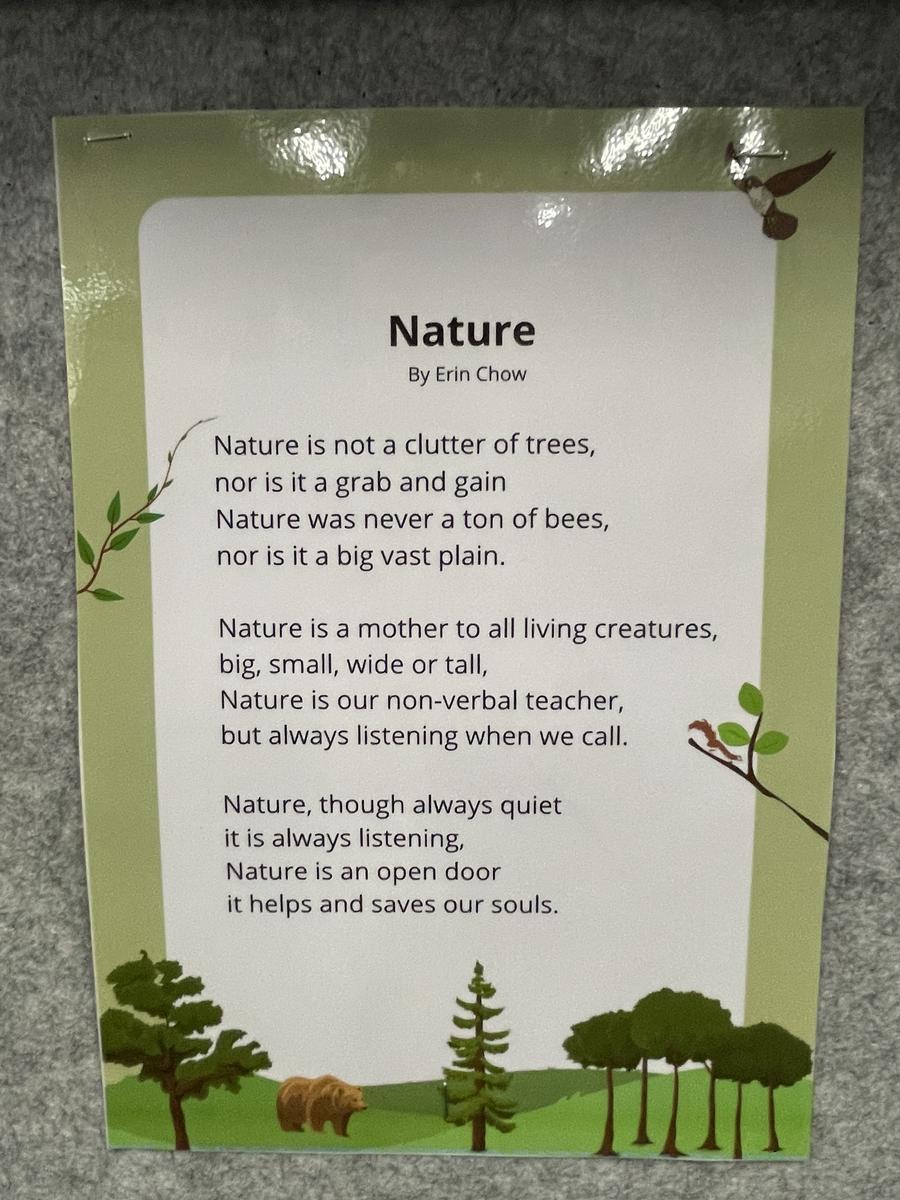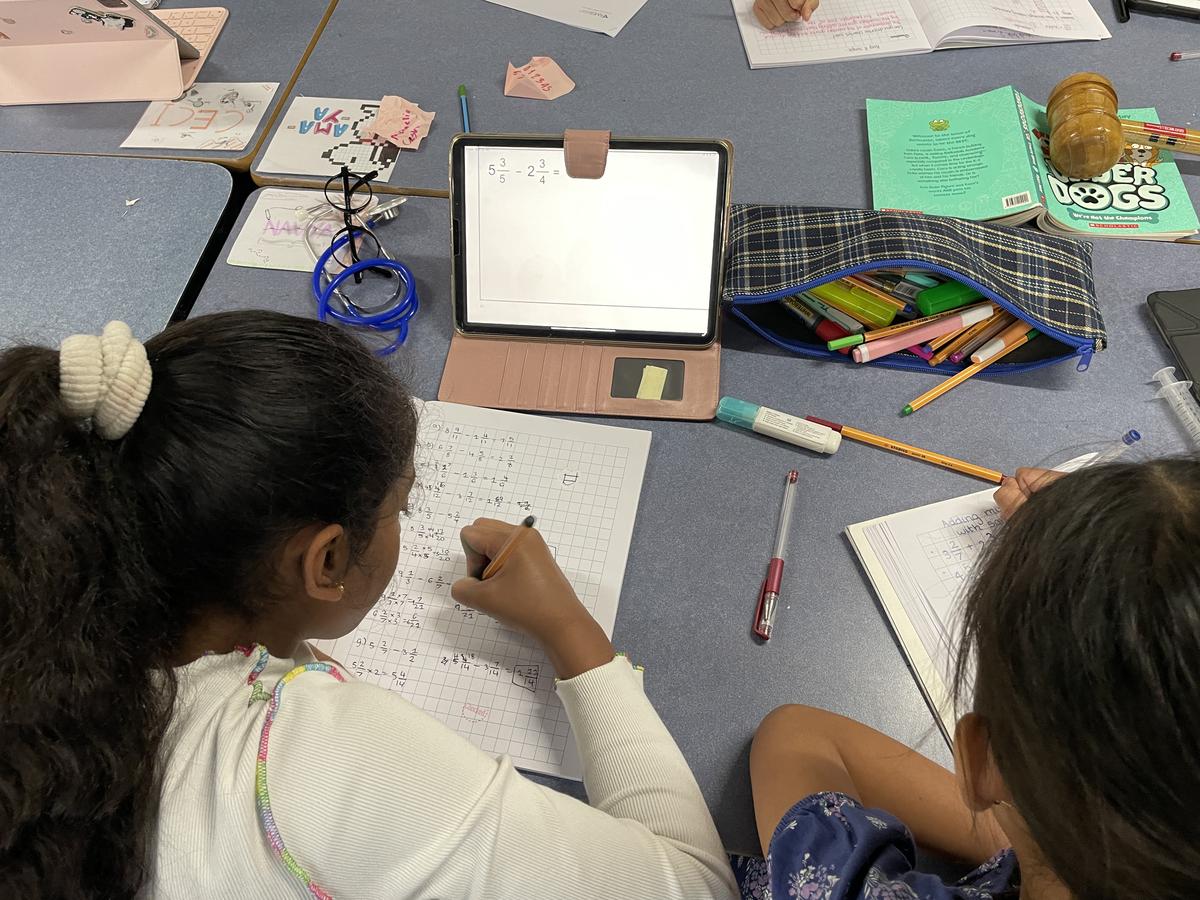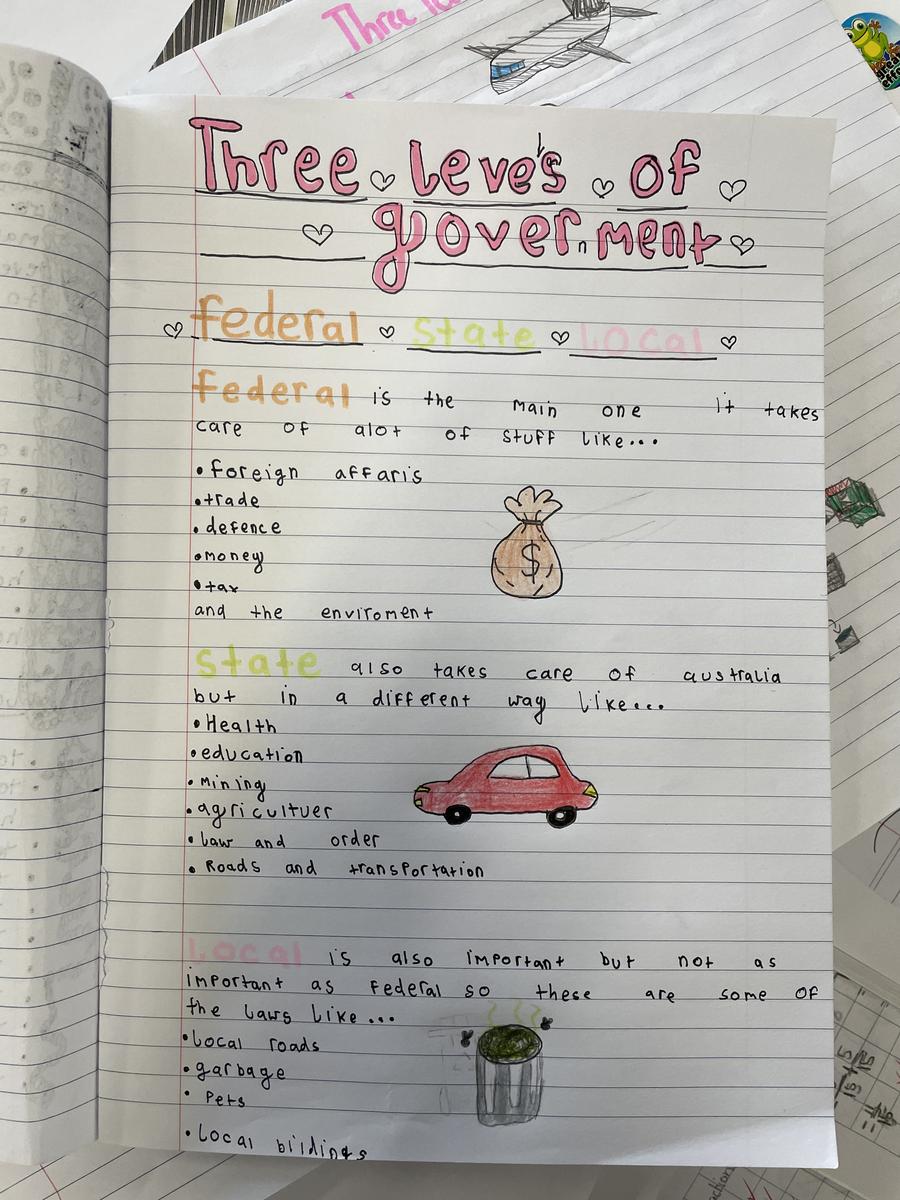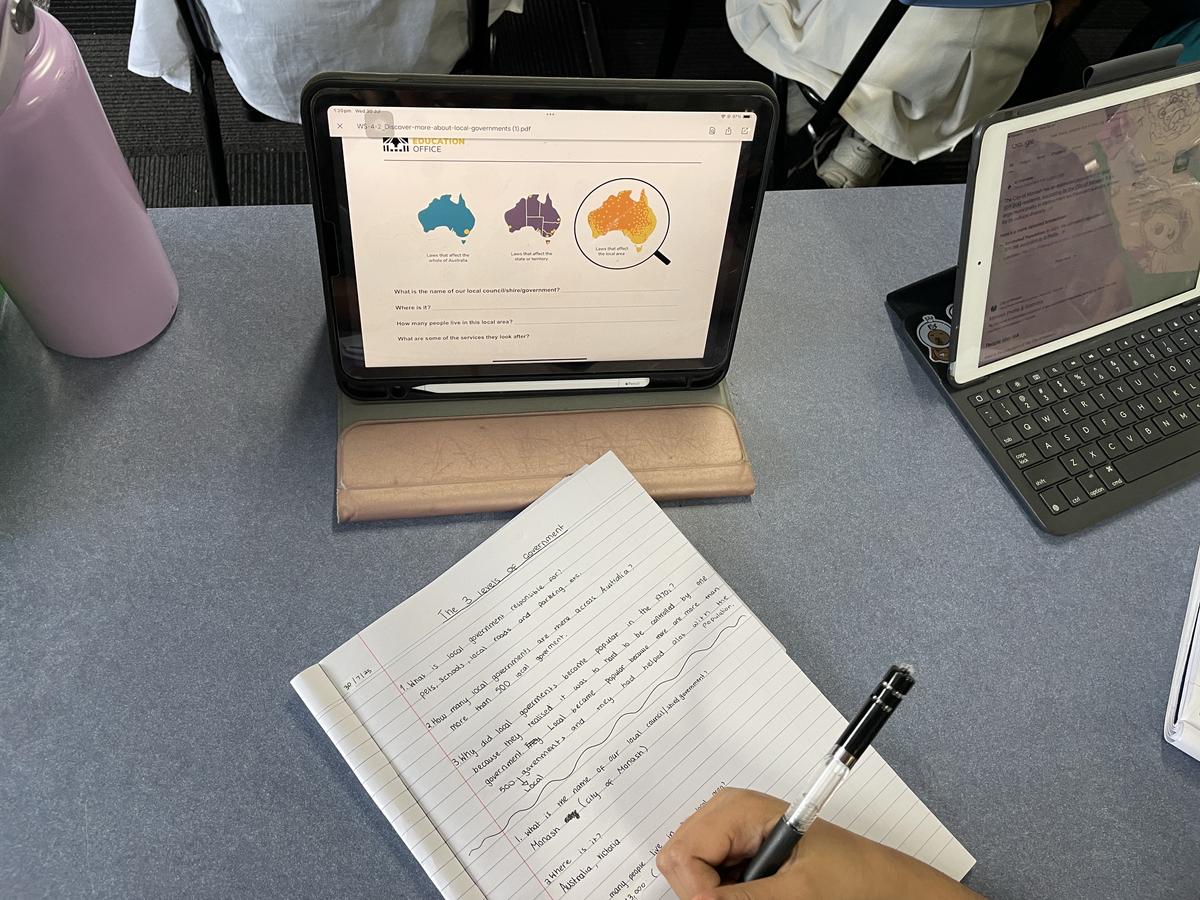Term Three
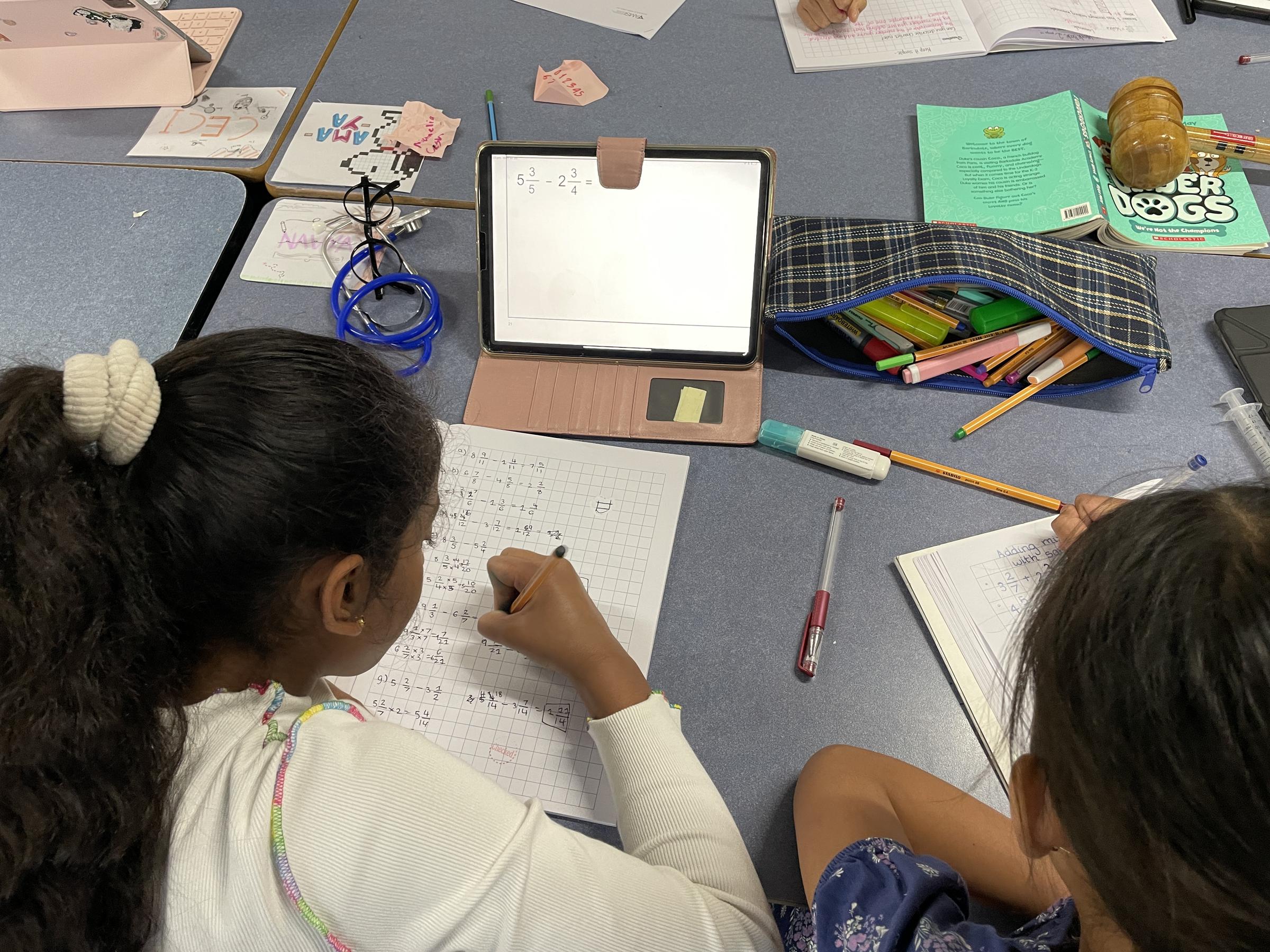
English
Reading
In English, as a continuation of Literature Circles from Term Two, students will read and discuss a shared novel in small groups to build their comprehension, speaking and listening skills. They will have the opportunity to change the role they have in the group and develop proficiency in another reading skill. We found that students had embraced the Literature Circles task and that they found a growing sense of ownership over their role in the group.
Students will also read a variety of poems, exploring how authors use poetic language, imagery, and structure to express ideas and emotions. Through this, students will learn to interpret meaning, make connections, and appreciate different styles of poetry.
Key Vocabulary:
- Stanza
- Line break
- Rhyme
- Rhythm
- Meter
- Alliteration
- Tone
- Mood
Writing
In Writing, students will build on their exploration of poetry in reading to use poetic devices to express ideas and techniques in their own writing. Students will focus on using interesting and purposeful vocabulary to capture their readers’ attention. They will also perform their poems, use expression and tone to bring their words to life.
Students will then look to develop their persuasive techniques and build confidence in speaking to audiences through speeches. They will investigate the many techniques used by public speakers to engage audiences and convince them to agree with the point of view being expressed. This will include persuasive devices in writing, such as rhetorical questions, emotive language, modality, hyperbole, facts and statistics.
Key Vocabulary:
- Simile
- Metaphor
- Personification
- Imagery
- Onomatopoeia
- Theme
- Rhetorical question
- Emotive
- Modality
- Hyperbole
How can you support your child’s English learning at home?
- Encourage daily reading by providing a variety of books, poems, and articles that interest your child.
- Discuss the stories and poems together to build comprehension and critical thinking skills. Ask questions like, “What do you think this means?” or “How does this character feel?”
- Encourage them to practice reading aloud to build confidence and fluency and even perform poems or speeches to family members.
Mathematics
During Term Three Mathematics, students will continue to develop their mathematical understanding and skills through Algebra, Number, Measurement and Space.
In Algebra, students will develop algebraic thinking by identifying and creating rules for number patterns. They will use algebraic equations to record the rules and apply the rules to find out missing numbers.
In Number, students will order, add and subtract fractions with related denominators, as well as estimating, multiplying and dividing with numbers to three decimal places.
In Measurement, students will learn to identify and measure complementary angles, supplementary angles, angles at a point, and vertically opposite angles, and use this understanding to find unknown angles.
In Space, students will develop their ability to locate points in the four quadrants of the Cartesian plan, plotting coordinates with both positive and negative integers. They will explore transformation of shapes and how coordinates would be affected by this movement.
Key Vocabulary:
| Pattern | Fractions | Angles |
|
|
|
| Decimals | Measurement | Location & Transformation |
|
|
|
How can you support your child’s Mathematics learning at home?
- Draw your child’s attention to the many places fractions are used in everyday life (recipes, sports, fuel gauges)
- Encourage your children to take part in grocery shopping and looking for percentage discounts
- Encourage your children to identify and classify angles they see in real life
- Have conversations around the mathematics learning they have been working on at school
Inquiry
Question:
How does Australia’s political system reflect and promote democracy?
Global Goal:
#16 Peace, Justice and Strong institutions
(Summary of Learning):
In Term Three, students will explore the foundations of democracy, the structure and roles of local, state and federal governments, and the development of laws. They will use case studies to explore contemporary issues and the roles and responsibilities of different levels of government. Furthermore, they will examine how participating in democratic processes could affect their community.
Key Vocabulary:
Constitution, Parliament, Democracy, Government, Electorate, Contemporary, Senate, Representative, Monarch, Amendment, Bipartisan, Judiciary, Legislation, Petition, Vote of no confidence, Civil, Declaration, Cabinet, Liberal, Labour, Westminster.
How can you support your child’s Inquiry learning at home?
**Please ensure these 3-4 suggestions that are scaffolded to cater for your students*
- Read local and national newsletters together and discuss any contemporary issues.
- Unpack the key vocabulary
- Compare the political system between Australia and your home country/other country
Wellbeing
The Resilience Project
This semester, students will continue to develop their Gratitude, Empathy, Mindfulness (GEM) and Emotional Literacy through The Resilience Project. Students will engage in a variety of opportunities to explore and practise each aspect, which will equip them with strategies to enhance their resilience and wellbeing. For example, students will practise being grateful for small things around them and learn about sportsmanship to further develop their Empathy. Through interactive lessons, discussions, and reflective exercises, students will continue to deepen their understanding of self and others.
Further to this, we have developed a series of lessons designed to promote an understanding of ‘fair vs unfair,’ ‘equality vs equity,’ ‘resilience’ and ‘grudges and forgiveness’ based around the data we received from the Student Perspectives Survey and information gathered by our SRC students. These aim to increase connection between students and develop a deeper understanding of the different needs of different people.
The Cyber Safety Project
Students will continue to learn about the best ways to be safe online through The Cyber Safety Project. This term, we will be looking at concepts such as the safe use and understanding of the potential inaccuracies of AI tools, critical thinking around online content and how to recognise the ways games and apps aim to hold our attention.
With the increase in the understanding and use of generative AI tools becoming more common, it is important that your children continue to be educated about the appropriate use of such systems. We believe this will be a very beneficial focus.
Key Vocabulary:
- Wellbeing
- Resilience
- Gratitude
- Empathy
- Mindfulness
- Emotional literacy
- Cyber safety
- Responsibility
- Integrity
- Mental health
- Generative AI
- Social media
How can you support your child’s Wellbeing learning at home?
- Engage in conversations around emotions and the choices we make in uncomfortable situations.
- Take the opportunity to reflect during times of change about how the situations felt in the moment.
- Demonstrate appreciation for the things that make life joyful and encourage your children to do the same.
- Engage in conversations about AI as something that can be helpful, but only if used appropriately.

